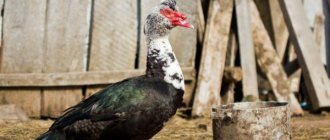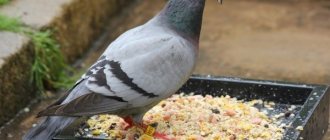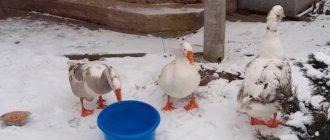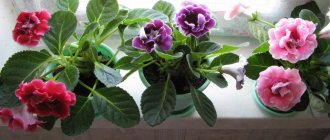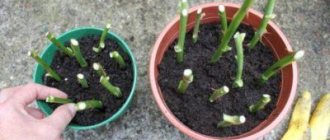Feeding for the first time
In the first days of life, ducklings should be provided with proper care. The most common problem is feeding newborn birds. The thing is that they cannot eat food on their own. The farmer should feed the little ducklings with his own hands. All the rules and regulations of this difficult business for inexperienced farmers were passed down from generation to generation. Only hatched birds should be given milk from a pipette. Experienced poultry farmers also recommend feeding finely ground boiled yolk. This food will be the duckling's first food.
The first day of a bird's life is the most difficult. And this is connected precisely with the owner’s ability to care for her. Not knowing what to feed ducklings in the first days of life is a common problem among inexperienced farmers. Incorrectly selected food for newborn birds is the main cause of mortality in livestock. Raising healthy ducklings without losing their numbers is the desire of every poultry farmer who strives to obtain benefits - tasty meat.
Caring for newborn ducklings
Immediately after birth, the chicks are not demanding in terms of maintenance. All that is required of you as the owner is to ensure that the birds do not freeze and eat well. Organize a comfortable temperature regime if ducklings are raised without a brood hen. For the first week, you can keep the birds in a brooder or incubator; if you do not have such equipment, take an ordinary cardboard box or basin. Place a warm rag at its bottom, place it in a well-heated place and hang a light bulb above the structure. If the cubs are cool, they will begin to gather together and bask under the light source.
DIY brooder for ducklings
| day of life | Comfortable temperature, C |
| From 1 to 5 | From +26 to +28 |
| From 6 to 10 | From +22 to +26 |
| From 11 to 20 | From +18 to +21 |
| From 21 days | +16 |
When the babies are two weeks old, place a small container of warm water in a box where they can clean their feathers. To avoid the ducklings getting too wet and freezing, do not leave the bathing suit on for too long. If the babies grow up with the hen, let them go for walks from the third or fourth day of life. Feel free to let them go for a walk with their mother - she lubricates the children with fat on her own, preventing the babies from freezing. About 20 minutes or half an hour will be enough to walk around and swim.
Duck with offspring on a walk
Prices for a ready-made brooder for ducklings
Brooder for ducklings
What to feed a bird a day after birth?
Keeping small ducklings at home requires their owner to help with feeding. Especially often, newborn birds have to be fed with their own hands, because, unlike goslings, ducklings do not eat well in the first day after hatching. Solving this problem is not difficult. Day old birds should be fed as follows:
- Finely chop the boiled yolk.
- Move the ducklings closer to each other with your hands.
- Place a pinch of food on the backs of the birds.
- Feeding ducklings this way activates their natural instincts. They start eating each other's eggs from the backs.
You need to start small. You should not immediately accustom your birds to the bowl. For day-old ducklings, the world around them is something new and unexplored. For their active growth, human assistance will be required. From the first day of life, proper feeding becomes the main task of the farmer.
Juicy feed for ducks
Green food for ducks is a favorite and always desired type of food. In nature and on summer walks, the bird especially readily eats succulent aquatic vegetation, which contains a lot of microelements, proteins and vitamins. How to feed ducks if they do not have access to a natural body of water?
The birds are offered pre-harvested duckweed and other crops, and they also do not forget about the benefits of herbs, which are always available in almost every area. This:
- nettle, which must be doused with boiling water before feeding domestic ducks;
- tops of peas, alfalfa and other forage legumes;
- clover.
Ducks happily eat succulent vegetables, such as carotene-rich pumpkin and carrots, as well as almost all types of cabbage, lettuce and green onions.
When feeding ducks, melons and root vegetables must be chopped. If potatoes and sugar beets are included in the menu, they are pre-boiled.
Features of feeding ducklings in the first week after birth
Every experienced poultry farmer knows what to feed little ducklings in the first days of life. Day-old birds are fed only eggs and milk, increasing their diet every day. Raising ducks requires careful monitoring of the birds' diet, especially one day after birth. On the second day it will be easier to monitor the bird. All the conditions for their growth have already been met, all that remains is to accustom the ducklings to nutritious, healthy food. On the second day, low-fat cottage cheese can be added to the menu of small birds. It should be included in the diet in separate portions, alternating with a boiled egg. On day 5-6, the duckling can be fed grass. It's better to give:
- nettle;
- dandelion;
- quinoa;
- green legumes.
You can also make mash with grass, including cottage cheese and egg. We must not forget about water. She should always be close to the bird, especially in the first days after hatching. And here you can’t do without human help. It is best to give it to ducklings through a pipette. Such manipulations will take 1-2 days until the baby learns to drink from the drinking bowl himself.
Features and norms of nutrition
Waterfowl differ from land birds in the predominance of plant and animal foods in their diet. In the wild, ducks consume a lot of aquatic vegetation and feed on zooplankton, small fish, tadpoles, and insects. Grains and grass seeds are present in the diet only slightly. Domestic ducks are fed grain and grass, vegetables. The more greens on the poultry menu, the less fatty and tasty the carcass will be.
Due to the structure of the duck's crop (it is small in size), the bird is forced to consume food in small portions, but often. The food in the feeder should be kept constant so that the ducklings can eat as many times as they need. Babies who are less than a week old are fed 5-6 times a day.
Adding new products
Keeping week-old ducklings at home requires their owner to take action to expand the birds' diet. Ducklings' digestive systems can already digest solid food, so you should provide it for them. From the seventh day you can give the bird any grain. The still tender age of ducklings requires grinding such food. The best option would be a mixture of grains. You can start with:
- barley;
- millet;
- wheat;
- oats;
- corn.
Before giving grain to birds, it should not only be ground, but also peeled. Beginning farmers often make the mistake of not doing this, which causes the death of ducks. You also need to know how much grain is the daily requirement for a duckling. Experienced poultry farmers advise not to exceed the volume of 15 g.
Keeping ducklings at home requires compliance with several more rules, the implementation of which will affect the growth of the birds:
- The diet of young animals after the 10th day requires the abandonment of boiled eggs.
- Feeding birds includes foods rich in vitamins. It is recommended to make mash with cottage cheese and grass.
- In the first week, the ducklings' diet should include grated carrots.
- Raising and keeping poultry also requires knowledge about the nutritional standards of young animals.
Consequences of poor feeding
An unbalanced diet and feeding of prohibited foods lead to deviations in the development of ducks:
- growth retardation;
- lack of appetite;
- feather loss;
- cannibalism;
- uncontrolled eating of inedible objects;
- avitaminosis;
- low immunity.
Excess fine flour turns the mash into a sticky mass that sticks together the beak and clogs the nostrils. Fresh fatty milk and cottage cheese cause diarrhea in day-old chicks, so they can only be fed with skim milk. Mold in food causes the development of a fungal disease of the respiratory tract - aspergillosis. Rickets develops from a lack of vitamin D in the diet, and ammonia blindness develops in confined spaces and with a lack of vitamin A.
Ducks should not be fed with feed for cattle or pigs. Birds die from too high concentrations of stimulants and vitamins. The same effect can be obtained from feeding expired or low-quality duck feed.
What is starter feed?
Compound feed, which is called starter feed, is a mixture of food products for ducklings that contains all the necessary nutrients for their development. Such products correspond to the OKPD number. Knowing the composition of the mixture, you can make the compound feed yourself. Ducklings should start feeding them within a few days of birth. The components of the combined food are suitable for a still fragile digestive system. Many components are ground into flour. Newborn chicks should be provided with soft, moist food: mash with cottage cheese, eggs and grass. Weekly - from grains, natural minerals, grass and vegetables.
Nutrition standards
In order for birds to grow faster and gain the required weight, the farmer needs to select nutritious feeds and combine them correctly. This cannot be done without knowledge of the recommended nutritional requirements for birds in the first week of birth. The daily diet of ducks should include:
- 15 g crushed grain;
- 20 g of greens;
- 3 g chopped boiled egg;
- 3 g low-fat cottage cheese;
- 5 g wheat bran;
- 2 g soybean meal.
We must not forget about vitamins and minerals:
- grated carrots - 5 g;
- chalk - 1 g;
- meat and bone meal - 0.5 g;
- feed yeast - 0.5 g.
This starter feed contains everything birds need from day two to two weeks of age.
How to cook mash
It is important for any little duckling to receive plenty of nutrients in the form of dry and wet food. Feeding birds requires a person to constantly pour grain into the feeder (dry food) and feed mash (wet food) twice a day. According to reviews from experienced poultry farmers, raising ducks with this diet is effective in obtaining meat from them. But controlling the supply of food and its volume can be difficult for inexperienced farmers, because it is determined depending on the gain in live weight of the bird.
Wet feeding is an integral part of a healthy duckling diet. If the diet is incorrectly calculated, two-week-old birds may develop weakness in the legs. This happens due to a lack of calcium, which the duckling’s body needs to feed. Phosphorus and protein are also important. The lack of the latter often leads to disturbances in the plumage of birds. Many farmers use artificial amino acids in powder form. It, along with grass, cottage cheese and other products, is seasoned with whey or water and served to the birds.
Special vitamins will also help raise ducklings for meat. Their deficiency can lead to a decrease in the level of immunity and some diseases dangerous to their health, so it is better to take care of adding vitamins to the daily menu of ducklings. The following products are suitable:
- meat and bone meal;
- potato;
- beet;
- swede;
- pumpkin.
What else is important
Compound feed for ducklings is the main food for several months. Many poultry farmers forget about the need to prepare it immediately before serving, and this is a big mistake: beneficial substances can be destroyed due to long-term storage. Old feed fed to birds can do more harm than good. Already on the first day the mash begins to rot. Such food can even lead to the death of ducklings.
What are the benefits of homemade mash for ducklings?
In addition to feed and grain, ducklings need wet mash for normal life. Feeding ducklings with them is carried out approximately 2 times a day. Usually this time falls in the morning and second lunch.
In addition to feed and grain, ducklings need wet mash for normal life.
They are made from various root vegetables and vegetables. Carrots, cabbage leaves, pumpkin, beets, rutabaga are taken fresh, grated on a fine grater, and potatoes, if given, are only boiled and mashed. The mash is fed immediately after preparation. You can’t make them for future use, as they are wet and will turn sour very quickly, especially in the summer.
It is worth noting that feeding mash is very important if ducklings are fattened for meat, since such food contains an abundance of nutrients that are very necessary for this bird
Features of the diet of monthly ducklings
Fattening one-month-old ducklings plays one of the most important roles in generating profit from farming activities. Meat, eggs, feathers and down are valuable commodities for those involved in poultry farming, therefore, starting from the month of birth, the amount of food consumed by birds should be maximized.
You should take care of grass and greenery growing in ponds. If the farm does not have a pond, from the first weeks the ducks are taught to eat the greens growing in the garden. Having firmly stood on their feet, they themselves will eagerly attack the plants available in the garden, but still, for a body that has not yet become stronger, grass should be added to the mash. Starting from a month old, ducklings can also be fed with mash, which includes root vegetables and grain.
But it is still difficult to replace one product. Ducks develop faster and gain weight from duckweed, which is kept in open water bodies. They use it from the month of birth, when they begin to feel confident on the water. Ducklings consider this food their delicacy, so they eat it in large quantities.
Diet preparation for laying hens and fattening ducks
Domestic ducks for meat production are early maturing and for maximum productivity during fattening they require a special diet almost from birth.
The faster the bird gains slaughter weight, the more tender the meat will be. Therefore, the menu for fattening ducks should be as balanced and varied as possible, including both proteins for building muscle mass, and carbohydrates, minerals and vitamins.
Laying hens need their own “diet”, which the birds are switched to 20 days before the start of laying. The diet of this category of birds includes more concentrates and protein-rich feed. Particular attention is paid to replenishing the body with calcium, ensuring the growing moisture needs of the duck, and reducing the proportion of green, coarse and juicy products.
The menu for laying hens includes sprouted grains and yeast containing many amino acids and active substances.
Features of the diet of ducklings in the absence of a pond
Ducklings grow and develop in the conditions that man himself creates for them. The main problem of bird breeding is the lack of water. It is important for waterfowl ducklings to have unhindered access to water, as it is part of their natural habitat. But not all farmers can have a pond on their plot. What should people do if they do not have the opportunity to provide the conditions necessary for birds? There is no need to refuse breeding. Weight gain can be achieved by other methods:
- Ducklings need to drink a lot, so their drinking bowls should always be filled with clean, fresh water. The more fluid they consume, the faster metabolic processes occur in their body. Without water, ducks quickly die.
- Aquatic plants should be added to food in finely chopped form. A farmer can buy them or catch them in freshwater bodies.
- If the farmer has not yet purchased ducklings, he should study the bird breeds in more detail. Many ducks easily tolerate the absence of a body of water near their main habitat.
Fattening ducklings for meat
Ducklings are usually not susceptible to diseases that can harm other birds, so there is no need to use various veterinary drugs to accelerate growth and development. Do not give your ducklings chemicals: if the medicine is used incorrectly, it can cause harm to your pets. Allow individuals to plant food at the end of spring, let them walk outside and eat in nature. If the weather is bad and there is no opportunity for walking, cut off the vegetation and bring it to the house.
Plant food for fattening ducklings for meat
In winter, it is necessary to dilute the diet with nutritious feed. To feed one chick during the cold period, you will need potatoes (13 kg), root vegetables (10 kg), hay (8 kg), bedding (12 kg), medium-sized granular sand (600 g), as well as combined food (1 kg) or other mineral food. If you feed the offspring correctly and provide them with proper maintenance, the individual will reach the weight required for slaughter by nine weeks. For example: after consuming 10 kilograms of feed, a Peking duck weighs three kilograms, and Muscovy ducklings will have to be fattened a little longer.
If there is a body of water nearby
Some breeds of ducklings can swim as early as one month of age. The owner of the livestock should monitor this important period in the life of the bird. Duckweed and other types of algae are eaten by the livestock, which should also be recorded by the farmer. During this period, the amount of food should be reduced and the coastal area should be equipped with a special enclosure. Access to water must be unlimited.
All food products remain unchanged, but the answer to the question of how much to give is different - the mass decreases. The diet is dominated by dry mixtures, which include:
- 9 g corn;
- 49 g wheat;
- 17 g barley;
- 7 g sunflower meal;
- 4 g herbal flour;
- 1 g chalk and shells.
Main types of feed
The diet of young and adult ducks should consist of succulent vegetation, cereals, vegetables and animal feed. In order for the digestive system to work stably, it is necessary to add chalk, coarse sand and various shells to the menu. There are several main types of duck feed:
- Cereal feed. The majority of the diet should be cereal foods. It contains many carbohydrates, which are necessary for maintaining vital energy, growth and weight gain. The group includes corn, wheat, barley, oats, and legumes.
- Processing products of enterprises. These foods contain vitamins and protein. These are cakes, meal from oil crops, potato or bread waste, bran, as well as brewer's or baker's yeast.
Shmokh, meal for feeding ducklings
- Juicy food and root vegetables. The main food for summer keeping ducks. These are various vegetation, combined silage and grated vegetables (cabbage, pumpkin, carrots).
- Food of animal origin. When kept at home, ducks often feel a lack of such food, which is needed to maintain health. The group includes: fish and meat and bone meal, dairy products.
Fishmeal for feeding ducklings
Provide the ducklings with mineral supplements: shells, eggshells, chalk, table salt and coarse sand - this is something without which the process of digesting food will be difficult.
Helpful information
During walks, ducklings can attack vegetables growing in the garden. They are always ready to eat zucchini, pumpkin and other fruits. You should protect your own garden using any available means. Fences made of boards or other materials will act as a barrier for arrogant birds. Wing trimming can also help protect your garden. There is much debate about whether this procedure should be used at an early age. But one fact remains certain: ducks whose wings are not clipped are destined to leave the farm. Having grown stronger, they leave their habitats to reunite with nature.
There are also some dietary features that depend on the time of year.
In winter, ducklings require more vitamins and minerals contained in plant foods. For this purpose, farmers recommend adding 20 g of dried fruits to the mash once a week. But you should not eat this product sparingly: consuming it in large quantities can be dangerous to the health of birds. Mushrooms are considered a source of vegetable protein in winter. There is also no need to overuse this product. It is recommended to add them to mash no more than once a week.
What food can be used when feeding small chicks?
Farmers prefer to give complementary food in the first month of life of chicks - this is PK-21 feed.
It contains the necessary cereals, cereals, calcium, vitamins and minerals. A small amount of milk or whey is added to it. You also need to remember about water.
Leftover food should be thrown away
The remaining food must be thrown away; it is a perishable product. When the ducklings have reached the age of 30 days, they should be switched to another food - PK-22.
Cereals
The duck is an omnivorous bird, so choosing food at home is not difficult. The main component is cereals.
They contain carbohydrates, protein, fiber, which promotes rapid weight gain:
- Wheat – it contains protein (15%) and vitamins. It is given in its pure form or made into flour. The product is well suited for mash. The part of wheat in the total composition of the feed does not exceed 30%. Flour should only be coarsely ground.
- Corn is a favorite food of ducks. Contains fiber, keratin, essential vitamins and protein. The portion of corn in the daily nutritional intake should be 45-50%.
- Barley – 25% of the total weight of daily food. It must be added when it sprouts, or use a crusher to grind the grain.
- Oats - this crop contains fats that contribute to weight gain. Oats are peeled from the outer shell so as not to harm the health of the chick.
- Peas – contains protein (18%). It should be given in crushed form, the total volume of grain is no more than 10-12% of the daily requirement.
Root vegetables and succulent forages
It is better to raise poultry in warm periods . This will help save time and money. Any breed of duck needs a lot of greens and vegetables.
It is better to raise poultry in a warm period of time
Ducks also take the necessary nutrients from the pond.
The diet should contain the following products:
- greens (clover, buckwheat, legumes);
- aquatic vegetation (duckweed, pondweed, elodea);
- vegetables (cabbage, carrots, pumpkin, sugar beets).
Products of live origin
Proteins of animal origin must be included in the diet, regardless of the breed of the chick. The product promotes rapid weight gain and increases egg production.
- Dairy products (except fresh milk, it causes digestive system upset). Other dairy products are well absorbed by the body. They contain the necessary protein.
- Fishmeal – contains phosphorus, protein and calcium.
- Meat and bone meal – contains protein (45-55%). Add to the diet when the duckling is 5-6 days old.
Be sure to read:
Everything about keeping ducks together with another bird: behavioral characteristics, possible diseases and problems
Mineral supplements
Mineral supplements are needed for the proper development of waterfowl: they normalize the digestive system and ensure the proper formation of eggs.
You should add to your diet:
- bone meal;
- sand or gravel;
- chalk;
- egg flour.
Mineral supplements contain:
- vitamins: A, B, D;
- macroelements: magnesium, sodium, potassium, phosphorus.
Sand should be given once a week, the norm is 10-15 g.
